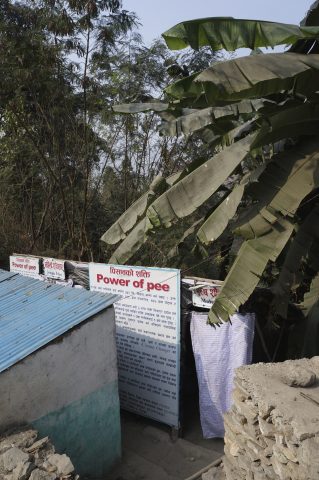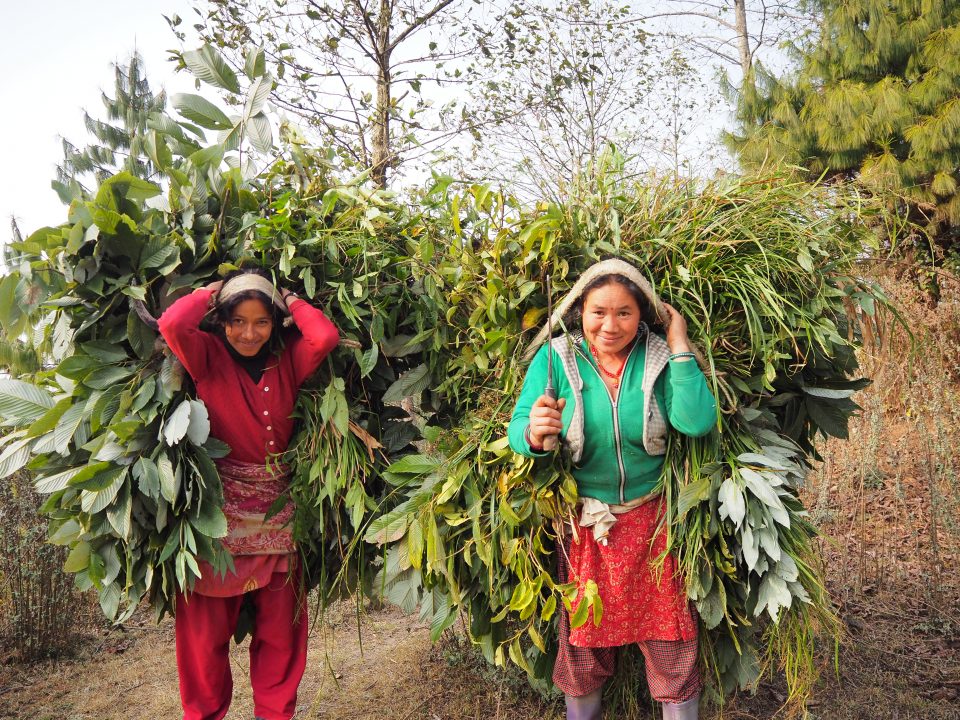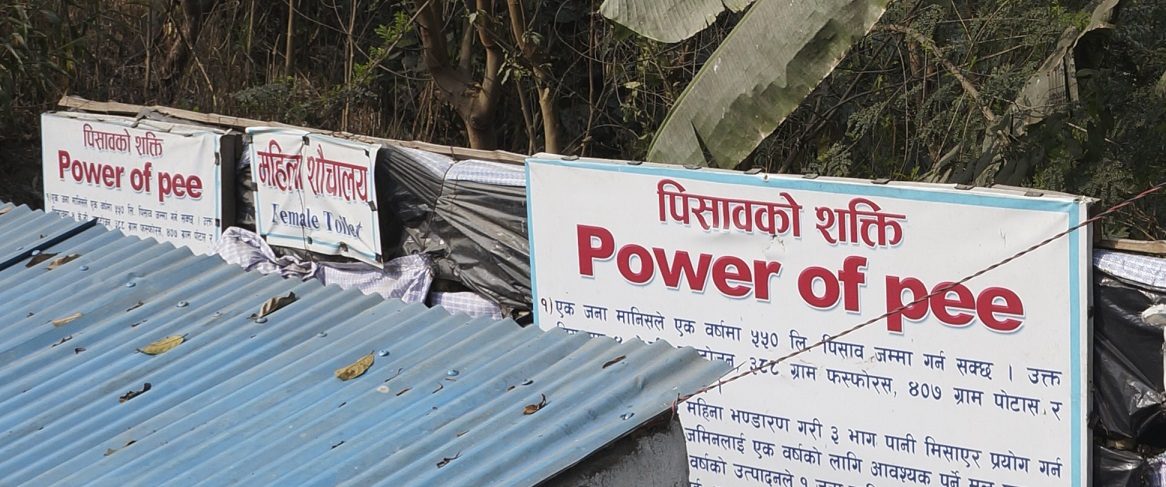
«Power of Pee». A roadside toilet in Nepal. Photo: Gabrielle Hairabedian
Gabrielle Hairabedian, Fivas’ volunteer
Farewell to flush and forget. Why it is important to start thinking of human waste as a resource.
A luxury
When nature calls we flush, wash our hands and repeat this throughout the day without thinking about what happens after we use the toilet and where our waste goes. Many people throughout the world today do not have this luxury or even have safe access to a toilet. Moreover, most of us do not realize that the waste we discard contains valuable resources that have the potential to improve nutrition and promote sustainable agriculture.
Collect wastewater
In Norway, as in most developed countries, there is often conventional, large-scale centralized infrastructure to collect waste through a vast network of pipes, drains and sewage systems. Centralized systems combine waste from toilets, showers, sinks, dishwashers and washing machines. However, sometimes these systems can be overloaded during periods of heavy rainfall, often leading to untreated wastewater being discharged directly into oceans, fjords, rivers or lakes. This is a cause for concern because untreated wastewater can have negative impacts on public health, water quality and the environment.
When Norwegians visit their cabins they are likely to use a decentralized system that is on-site and avoids a large sewer network. Decentralized systems are often household based, for clusters of homes or small communities and they provide better alternatives for reuse of human waste. However, why would one consider using such waste as a resource?
A resource
Even though most consider human waste to be just that, waste, some consider it to be a valuable resource full of nutrients that are vital for plant growth. Many fertilizers throughout the world use phosphate rock, a non-renewable resource, but our waste contains readily available nutrients such as nitrogen, phosphorus and potassium that are essential to the growth of plants. Furthermore, the largest fractions of these nutrients that are vital for plant growth are found in human urine. One of the many benefits of decentralized systems is that they can easily be altered to separate human feces from urine to better recycle the valuable nutrients contained in urine as fertilizer. This separation of human feces from urine is more commonly known as source separation. If the resources in our waste were safely recycled into the cultivation of crops, then the use of non-renewable resources would be minimized. Hence, the constituents of wastewater are undervalued as a potentially low-cost and sustainable source of fertilizer.

Women in Nepal collecting crops. Photo: Anders Tørklep
This holistic approach that links sanitation to agriculture is known as ecological sanitation or EcoSan. If EcoSan were more widely accepted, the possible benefits would be limitless for improved resource recovery, the potential to reduce the number of disease-causing pathogens in water bodies and the conservation of both mineral and water resources. Additionally, EcoSan contributes to the safe disposal of human feces and urine and ensures sustainable management of water and sanitation for all.

